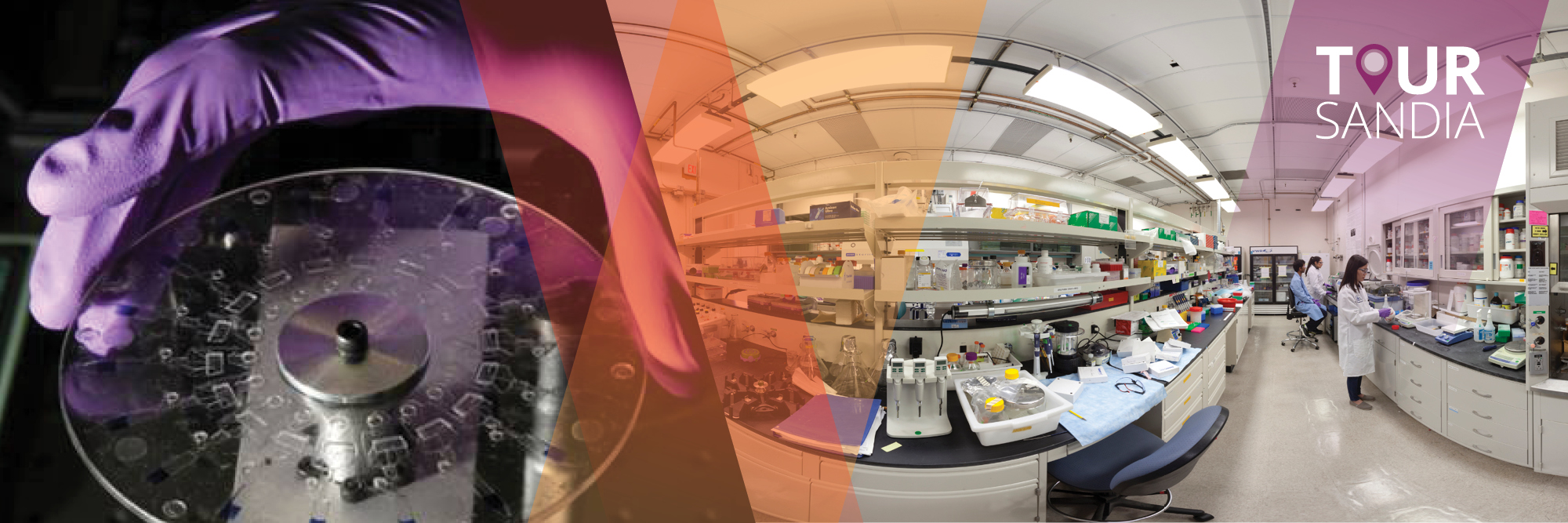Overview
Bioscience is one of Sandia's research foundations, an area considered key to the success of the Lab's national security programs. In the Applied Bioscience Laboratory (ABL) at Sandia California, the bioscience research focus is two-pronged: energy security and biosecurity.
In energy security, researchers confront the risks posed by global warming and climate change with studies of the biomass. The ABL houses research into the sustainability and the potential environmental impact of biofuel and bioproduct synthesis with the goals of reducing U.S. dependence on oil for both energy and other products while slowing damage to the environment.
Biosecurity research focuses on reducing threats from both naturally occurring infectious diseases and biological weapons. A deep understanding of the human immune response and host-pathogen interactions is applied to defense against emerging infectious diseases and potential disease outbreaks.
The ABL is housed in a facility originally built in the 1970s for tritium research. By the mid-1990s, the building was dedicated to chemical and radiation research before evolving a decade later into a focus on bioscience. In 2010, the Chemical and Radiation Detection Laboratory was renamed the Applied Bioscience Laboratory, reflecting the shifting emphasis in capabilities supporting national security.
